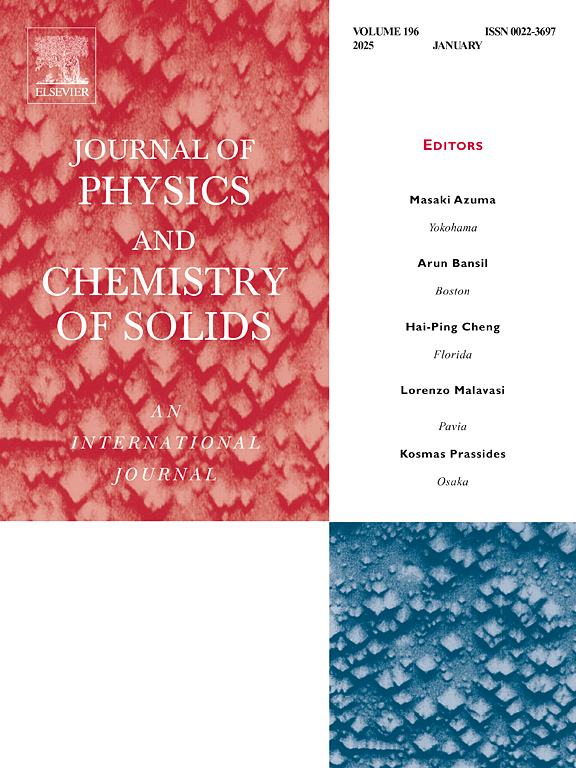在三波段埃利亚斯伯格s±波模型中分析Ba(Fe1-xNix)2As2薄膜的太赫兹光学响应
IF 4.3
3区 材料科学
Q2 CHEMISTRY, MULTIDISCIPLINARY
引用次数: 0
摘要
非常规超导体的正常态和超导凝聚态性质的不确定性继续引发人们对这些材料超导机制的大量猜测。尤其令人感兴趣的是阶次参数的对称类型以及超导态和正常态的基本电子特性。我们报告了通过测量不同镍浓度的 Ba(Fe1-xNix)2As2 薄膜的电导率和介电常数的太赫兹光谱,推导出超导凝聚态等离子体频率、超流体密度和伦敦穿透深度的温度依赖性。在假设超导耦合机制是由反铁磁自旋波动介导的前提下,在简单的三带埃利亚斯伯格模型框架内对实验数据进行了全面分析。独立实验的结果支持模型参数的选择。根据对超导间隙的温度依赖性的计算,我们可以得出结论,所获得的结果与 Ba(Fe1-xNix)2As2是具有s±波配对对称性的多带超导体的情形是一致的。本文章由计算机程序翻译,如有差异,请以英文原文为准。
THz optical response of Ba(Fe1−xNix)2As2 films analyzed within the three-band Eliashberg s±-wave model
The uncertainty of the nature of the normal state and superconducting condensate of unconventional superconductors continues to stimulate considerable speculation about the mechanism of superconductivity in these materials. Of particular interest are the type of symmetry of the order parameter and the basic electronic characteristics of the superconducting and normal states. We report the derivation of temperature dependences of the superconducting condensate plasma frequency, superfluid density, and London penetration depth by measuring terahertz spectra of conductivity and dielectric permittivity of the Ba(FeNi)As thin films with different Ni concentrations. A comprehensive analysis of the experimental data was performed in the framework of the simple three-band Eliashberg model under the assumption that the superconducting coupling mechanism is mediated by antiferromagnetic spin fluctuations. The results of independent experiments support the choice of model parameters. Based on calculations of the temperature dependences of superconducting gaps, we may conclude that the obtained results are compatible with the scenario, in which Ba(FeNi)As is a multiband superconductor with s-wave pairing symmetry.
求助全文
通过发布文献求助,成功后即可免费获取论文全文。
去求助
来源期刊
CiteScore
7.80
自引率
2.50%
发文量
605
审稿时长
40 days
期刊介绍:
The Journal of Physics and Chemistry of Solids is a well-established international medium for publication of archival research in condensed matter and materials sciences. Areas of interest broadly include experimental and theoretical research on electronic, magnetic, spectroscopic and structural properties as well as the statistical mechanics and thermodynamics of materials. The focus is on gaining physical and chemical insight into the properties and potential applications of condensed matter systems.
Within the broad scope of the journal, beyond regular contributions, the editors have identified submissions in the following areas of physics and chemistry of solids to be of special current interest to the journal:
Low-dimensional systems
Exotic states of quantum electron matter including topological phases
Energy conversion and storage
Interfaces, nanoparticles and catalysts.

 求助内容:
求助内容: 应助结果提醒方式:
应助结果提醒方式:


